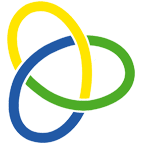PE
PE is an important part of the National Curriculum. Through the teaching of the Real PE and Real Gym curriculum, teachers will embed a child-centred approach where every child will be challenged and supported. The PE curriculum and the school’s sports clubs work to support our pupils to develop resilience, confidence and independence and lead a healthy and active lifestyle, helping the children to know how to keep physically and mentally healthy. The children will develop key abilities needed to be successful within PE and Sport across the curriculum. Children are encouraged to proactively take responsibility for choosing and communicating their individual goals and create personalised outcomes. A culture of peer coaching is an integral part of all lessons and creates opportunities for all children to learn and develop through critical feedback. We aim to inspire all pupils to succeed and excel in all PE lessons as well as competitive sports, giving children opportunities to compete in sport and other activities to build character and help to embed values such as fairness and respect.
National curriculum
A high quality physical education curriculum inspires all pupils to succeed and excel in competitive sport and other physically demanding activities. We aim to provide opportunities for pupils to become physically confident in a way which supports their health and fitness. As well as providing opportunities to compete in sport and other activities to build character and help embed the values of team work, fairness and respect.
At the end of each term PE is assessed on their ability to know, apply and understand the matters, skills and processes specified in the relevant programme of study.
PE is taught for 2 hours a week using a scheme of work called Real PE. This incorporates gymnastics, dance and the skills of games and develops a love of physical education and not just sport. Through Real PE we aim to promote physical activity through a positive and inclusive culture. The unique, inclusive approaches create habits and develop essential behaviours, physical literacy, emotional and thinking skills in every child.
https://www.createdevelopment.co.uk/real-pe/
The aims for the national curriculum are:
The national curriculum for physical education aims to ensure that all pupils:
- develop competence to excel in a broad range of physical activities
- are physically active for sustained periods of time
- engage in competitive sports and activities
- lead healthy, active lives
Key Stage 1
Pupils should develop fundamental movement skills, become increasingly competent and confident, and access a broad range of opportunities to extend their agility, balance and co-ordination, individually and with others. They should be able to engage in competitive (both against self and against others) and cooperative physical activities, in a range of increasingly challenging situations.
Pupils should be taught to:
- master basic movements including running, jumping, throwing and catching , as well as developing balance, agility and co-ordination, and begin to apply these in a range of activities.
- participate in team games, developing simple tactics for attacking and defending.
- perform dances using simple movement patterns.
Key Stage 2
Pupils should continue to apply and develop a broader range of skills, learning how to use them in different ways and to link them to make actions and sequences of movement. They should enjoy communicating, collaborating and competing with each other. They should develop and understanding of how to evaluate and recognise their own success.
Pupils should be taught to:
- use running, jumping, throwing and catching in isolation and in combination.
- play competitive games, modified where appropriate (for example, badminton, basketball, cricket, football, hockey, netball, rounders and tennis), and apply basic principles suitable for attacking and defending.
- develop flexibility, strength, technique, control and balance (for example, through athletics and gymnastics)
- perform dances using a range of movement patterns
- take part in outdoor and adventurous activity challenges both individually and within a team.
- compare their performances with previous ones and demonstrate improvement to achieve their personal best.
Swimming and Water Safety
All schools must provide swimming instruction either in Key Stage 1 or Key Stage 2.
In particular, pupils should be taught to:
- swim competently, confidently and proficiently over a distance of at least 25 metres.
- use a range of strokes effectively (for example, front crawl, backstroke and breaststroke).
- perform safe self-rescue in different water-based situations.
Sports Premium
Through a new 'Sport Premium' the Government is providing £150 million until 2020 to support the delivery of PE and sport in primary schools. This funding is being allocated directly to primary schools across England, providing them with dedicated resource to buy in invaluable expertise and support. Funding is being allocated through a lump sum for each school and a per-pupil top-up mechanism.
This term the sports premium money has been used to encourage provision and participation in sport at Leatherhead Trinity. The experienced coaching company NEAT provide multi skills after school clubs. They provide a Key Stage 1 and 2 club which links with our Real PE curriculum and the upcoming fixtures that term.
PE Overview
This is an overview of the Real PE and Real Gym curriculum broken down in to year groups.
You will be able to find information about the topics that the children learn about and the skills that they develop during their time at Leatherhead Trinity.
